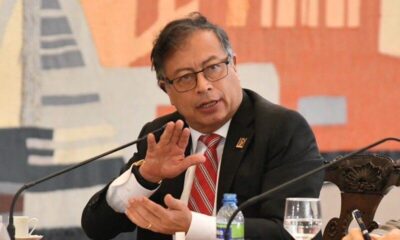Petro’s Reform Plans Stagnate as Colombia Sits at an Impasse
There is little news to start the week in Colombia — or at least much that is fresh (or particularly interesting). And the simple reason is that, 21 months into the government of Colombian President Gustavo Petro, we have hit a stalemate in terms of getting things done. Additionally, the economic blame game is in full throttle.
Once again, we are seeing the lack of a Colombian collective with everyone in it for themselves.
Photo: Colombian President Gustavo Petro (Credit: gustavopetro.com.co)
Petro is neither a pariah nor messiah. It is hard to argue against the need for change surrounding many of things he is trying to change, but his methodology has only further antagonized a ruling elite, who are opposed to changing the world order.
Remarkably, there are elements of Colombian society who seem comfortable with 3% of the population suffering from malnutrition, systemic corruption, and a constitution that fails to enshrine education as a citizen’s rights.
In terms of all the main reforms Petro has proposed — education, pension, labor, and health — changes are clearly needed. Yes, there is a need for debating and fine tuning the details, but in the end there are too many people with skin in the game to ever allow wholesale changes. Beyond that, trying to change the world in four years, was never going to work.
The economy is struggling — but not just because of confidence around Petro. A hostile Banco de la República has been almost negligent in reducing rates too slowly and not allowing the economy to breath. The private sector (in the shape of ANDI, FENALCO, and Asobancaria) has all said the same. The fact that Petro doesn’t inspire confidence, however, is a contributing factor.
Ratings agencies are demanding Petro balance the books — but then he is criticized locally for not easing the purse strings.
Finance Minister Ricardo Bonilla has mentioned increasing the debt level to inject money into the economy — but then he takes a beating.
Already, everyone is eyeing the 2026 elections, so it is hard to get anything done without favors — marmalade as they call it here — being called in. Alliances continue to shift around.
The country has arrived at a frustrating, irritating, and — frankly — boring moment. Additionally, the politicians are up to their usual game: “If you in investigate me, I will investigate you.”
I’d like to say this will all blow over soon. But to the Colombian elite, Petro represents, in their mind’s eye, an existential threat. And they are fighting hard to retain the power they have.

























